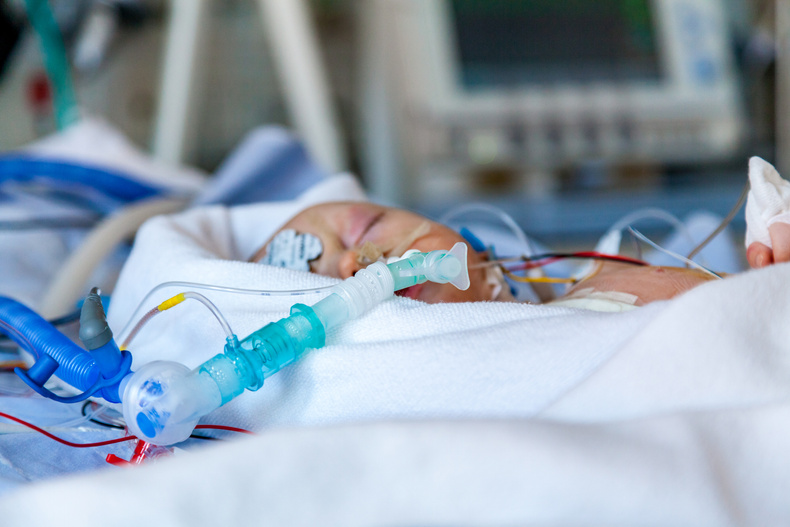Reducing mechanical ventilation 'can improve outcomes for critically ill children '

A major UK clinical trial carried out in collaboration with the University of Birmingham and Birmingham Women's and Children's NHS Foundation Trust has shown how a new approach to reduce the use of mechanical ventilation can greatly improve outcomes for critically ill infants and children.
The study, led by Queen 's University Belfast, found that an intervention which involved a greater involvement of nurses, minimising sedation use and increasing daily testing to assess the child 's readiness to come off the ventilator significantly reduced the time participants required mechanical ventilation.
It is the largest trial of its kind and has already led to changes in practice for two-thirds of the UK paediatric intensive care units (ICUs) for the benefit of infants and children.
The research found that, compared to the current standard care, the intervention reduced the time on the mechanical ventilator by an average of six hours in children who were expected to be on a ventilator for more than 24 hours.
Furthermore, in all children - regardless of whether they were expected to be on a ventilator for more or less than 24 hours - the intervention reduced the ventilation time by an average of seven hours.
Overall, the chances of children having their breathing tube removed successfully was greater.
The results of the Sedation AND Weaning In CHildren (SANDWICH) trial, funded by the National Institute of Health Research (NIHR), have been published in the Journal of American Medical Association.
The study involved more than 10,000 admissions to 18 ICUs, that accounts for two-thirds of the UK 's paediatric ICUs.
Professor Kevin Morris, of the University of Birmingham and a consultant in paediatric intensive care at Birmingham Women's and Children's NHS Foundation Trust, said: “Annually in the UK approximately 20,000 infants and children are treated in a paediatric ICU and, of these, around 12,000 receive mechanical ventilation.
“Mechanical ventilation is a lifesaving therapy but may involve related risks caused by the breathing tube in the mouth and throat; the need for sedative drugs to reduce anxiety; and the consequences of remaining confined to a bed.
“Therefore carrying out research to explore ways of reducing the time children spend on mechanical ventilation is vital. ”
The trial involved training more than 2,000 doctors and nurses in the new SANDWICH intervention.
This resulted in a change in practice for two-thirds of the UK paediatric ICUs for the benefit of infants and children.
The success of this quality improvement intervention in changing medical and nursing practice is far reaching for other paediatric ICUs world-wide.
